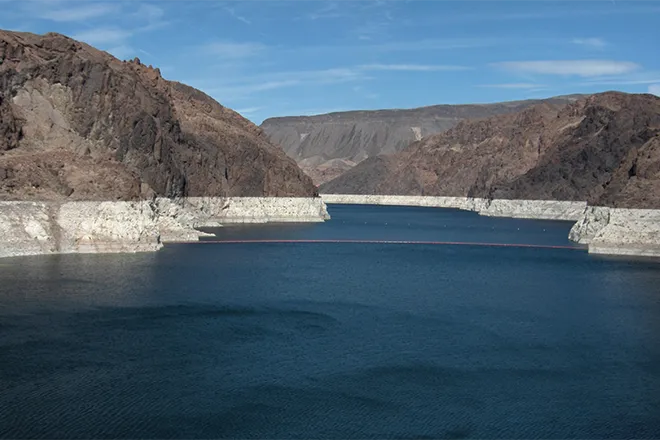
Daily Audio Newscast Afternoon Update - July 1, 2025
© INDU BACHKHETI - iStock-1336427297
News from around the nation.
Energy grid data center plans draw pushback in West Virginia; Small businesses brace for changes in 'One Big Beautiful Bill' and Pending SCOTUS arguments reignite thorny issue of campaign spending.
Transcript
The public news service Tuesday afternoon update.
I'm Mary Sherman.
The budget reconciliation bill named the one big beautiful bill could put 35 rural Kentucky hospitals at risk of closure by drastically cutting federal Medicaid spending.
Nadia Ramlagan reports.
Those facilities in Whitesburg, Middlesboro, Harlan, South Williamson and McDowell are on the chopping block according to Jason Bailey with the Kentucky Center for Economic Policy.
Eastern Kentucky hospitals continue to provide everything from birthing to cancer care and offer surgery, cardiology, physical and occupational therapy and family medicine.
Rural people already travel much farther than others for health care.
One study found nearly 200 rural hospitals have closed or converted since 2005.
But Kentucky has been largely spared from closures because of Medicaid expansion, losing just four hospitals in the past two decades.
Neighboring Tennessee, which did not expand Medicaid, lost 15.
And while federal lawmakers weigh steep cuts to student aid and education programs, some nonprofits say the ripple effect is already being felt.
Chandra Scott with Alabama possible warns they may have to scale back or start charging for college access services that have always been free.
We train high school counselors and career coaches across our state as well as some nonprofit organizations.
But this training provides a plethora of resources, whether we're talking about completing the fast for college applications, accessing scholarships.
Meanwhile, Senate appropriators plan to mark up fiscal 2026 government funding bills starting next week, with all 12 funding bills complete by the end of the month.
A plan to build energy data centers to meet state demands is generating opposition around West Virginia.
Some see the measure as a monthly grab and a way to lessen community involvement.
House bill 2014 permits the building of a 2000 plus acre facility to generate power using micro grids.
Governor Patrick Morrissey says the project will place West Virginia in a better position to compete with China on the technology playing field.
He says the measure will improve the utilization of coal and natural gas resources.
Gary Zuckett is co executive director of the Community Center Public Policy Group, West Virginia Citizen Action.
He thinks the centers will use dirty micro grids and that legislators have another agenda.
They've taken half of the tax revenue that would normally go to the counties from these proposed construction sites, and they're stealing that and squirreling those resources away into a fund to further reduce the state income tax, which generally benefits wealthy opponents fear the centers could potentially hike taxes and the control and enforcement of certain zoning regulations will be removed from local hands.
I'm Terry Dee reporting.
This is public news service.
Temperatures are on the rise across the country and in Arizona, and so our energy bills Alex Gonzalez has more.
The anti poverty nonprofit wildfire and the Arizona PERG Education Fund want to remind folks to make sure they're on the best rate plan and to ask for help now if they need it.
Diane Brown with the Arizona PERG Education Fund says the state's major electric utilities have support programs to help customers who may be struggling to make ends meet.
She adds, Despite these major utilities having policies in place that do not allow them to disconnect customers from power during the hot summer months, bills will still be due after the moratorium's end.
Unfortunately, we continue to see people still passing away or becoming ill because they aren't using their AC unit.
I'm Alex Gonzalez reporting.
A powerful natural bug repellent is hiding in some of our plants.
However, Michigan State University researchers say it may also be making our air dirtier, raising new concerns about crop science and climate.
The chemical is called isoprene, and it helps plants fight off insects.
Researchers say it doesn't kill bugs directly, but triggers a hormone that makes the plant harder to digest.
That's good news for the plant, but bad news for the atmosphere.
MSU professor Thomas Sharkey, who led the study, is an expert on the chemical.
When you mix hydrocarbons such as isoprene with nitrogen oxides, NOx, and sunlight is present, then it makes ozone.
More hydrocarbons are coming from plants than from all of the man-made hydrocarbons.
Sharkey points out that fewer than half of plants produce isoprene, and some labeled non-emitters actually do.
As new Alzheimer's treatments become available, a new study shows that rural Americans may have a tough time accessing them.
We get more from Shantiya Hudson.
One drug, lakanumab, can slow the disease by clearing out beta amyloid, a protein that builds up in the brain and is linked to Alzheimer's.
But to get the drug, patients first need a PET scan to confirm that buildup.
The study, led by Dr.
Niying Li, found that no rural county in Georgia has a PET scan center for this, and only one has a lakanumab infusion site.
Li says that makes it much harder for rural families to get the care they need.
The limited availability of amyloid PET scan facilities and lakanumab infusion centers means that they have to sit in a car, and I assume that it's their family caregivers who are driving the car, and take them for hours to receive all these healthcare services.
The Alzheimer's Association estimates around 188,000 Georgians are currently living with the disease.
Shantiya Hudson reporting.
This is Mary Sherman for Public News Service, member and listener supported.
Find our trust indicators at publicnewservice.org. you

















